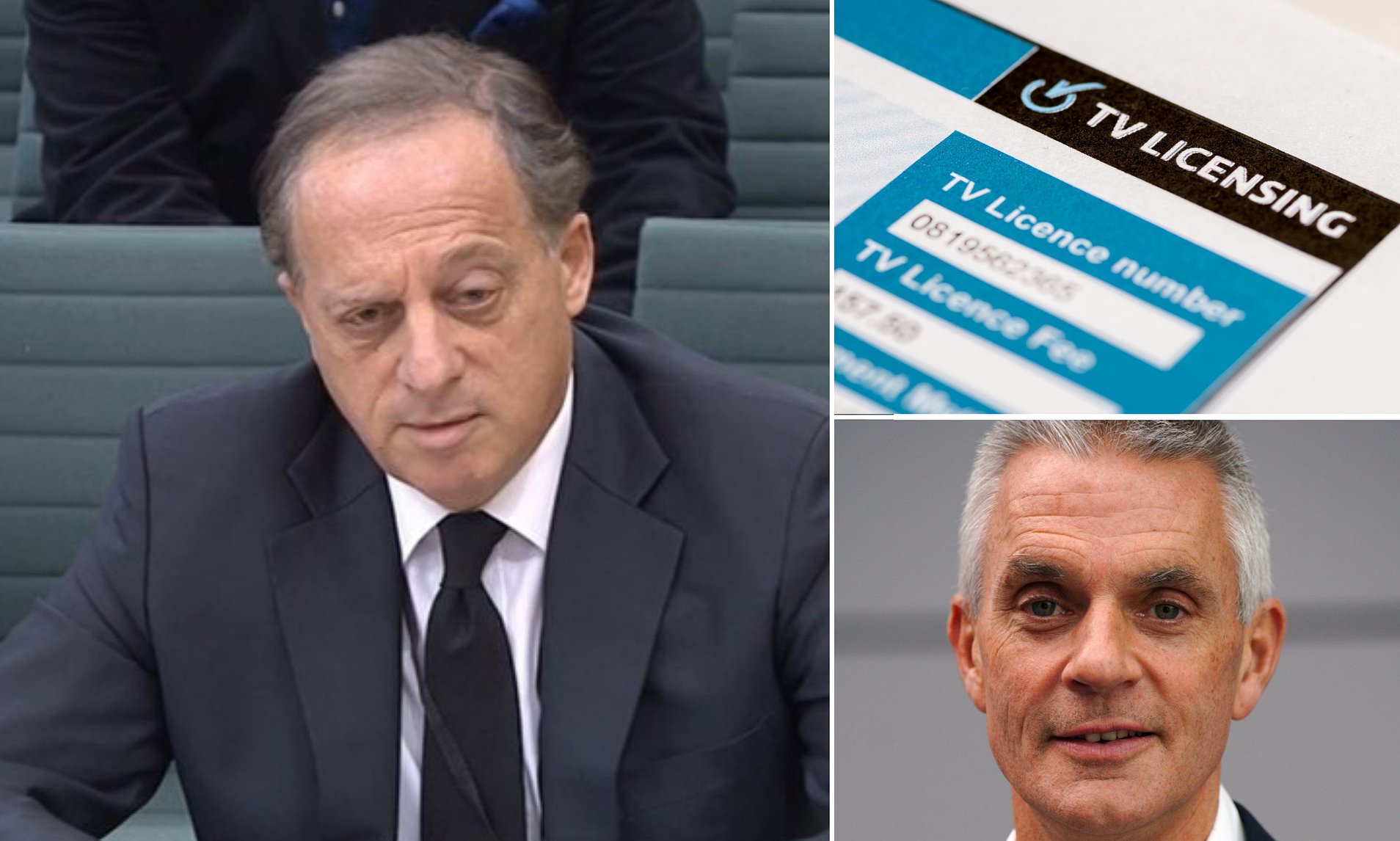
EX-BBC CHAIRMAN RICHARD SHARP SAYS THE LICENCE FEE SHOULD BE MEANS-TESTED - AFTER DIRECTOR-GENERAL TIM DAVIE SUGGESTED RICHER HOMES MAY HAVE TO PAY MORE UNDER PLANS FOR 'REFORM'
- Mr Sharp backed the proposal in his first interview with the BBC since quitting
- He said lower income households could pay 'less than those who are well off'
- The 68-year-old insisted that the BBC has more to offer than rivals like Netflix
The BBC licence fee should be means-tested according to its former chairman Richard Sharp.
In his first interview with the BBC since leaving the corporation, he said lower income households could pay 'less than those people who are well off'.
This comes just days after Tories already rejected the BBC director-general Tim Davies' proposal for richer homes to pay a higher TV licence fee.
Mr Sharp, 68, claimed everybody should 'have the opportunity to consume BBC content' and should be subsidised accordingly for the 'very good value' service.
He said it offered far more - with the World Service, news, sport and radio - than rival platforms such as Netflix.
Speaking on The Today podcast, the former chairman suggested there were 'opportunities for creativity' to ensure people don't get 'left behind in their opportunities for free media consumption'.
'I'm old enough to remember The Life of Brian and that scene of "what have the Romans ever done for you?"' Mr Sharp said.
'You know, Netflix doesn't provide sport, Netflix doesn't provide radio, Netflix doesn't provide local radio, Netflix doesn't provide a news website - doesn't provide world service or news at all.
'If you look at what the consumer gets, for the subscription on a monthly basis, it is very good value for money.'
With the licence fee currently at £159-per-year, its monthly average cost is £13.25 - £2.26 more than a standard ad-free Netflix subscription.
Asked if the fee should be means tested, he said: 'I personally am of the view that one of the great things we need to be concerned about is the future changing nature of the media industry.
'What you're increasingly going to have is consolidation - we saw that with Warner Brother, Paramount, failing to get together - and then you're going to have a very strong price control from the oligopolistic players.
'In which case, there is an element where people will be left behind in their opportunities for free media consumption.
'So, I do think the BBC has to be well-enough funded but in a way that also provides the opportunity for people to get a rich media consumption, who are on lower incomes.
'Naturally, that leads you to a view - it's a personal view, it's up to the politicians and government of the day to decide - I do believe there is an opportunity to have some limited differential in terms of how consumers pay for it, where the lower incomes still have the opportunity to benefit from the BBC at a lower threshold.'
He suggested it could be tested by broadband or council taxes and added: 'Obviously it shouldn't be over-complicated.
'I think most people would understand the importance, particularly now if you look at the pressures the cost of living has had on lower income households who are really struggling, they should have the opportunity in their homes to consume BBC content - at potentially a rate that may be less than those people who are well off.
'But that is an issue not for the BBC management or board.
'The BBC has to be efficient, it has to be well-run, and that's the board's job to challenge itself constructively, but it shouldn't be under-funded.
'Within the funding and constraints that are available, I think there are opportunities for creativity.'
Mr Sharp resigned as chairman of the BBC in April last year after a report into his appointment found he had 'failed to disclose potential perceived conflicts of interest', including his involvement in the facilitation of an £800,000 loan for then-Prime Minister Boris Johnson.
His comments come after Mr Davie this week announced the corporation’s plans to explore how to reform the licence fee and make it 'more progressive'.
In a major speech on Tuesday, hosted by the Royal Television Society, he said: 'We are not defensive about the future. We will need reform.
'With that in mind, we will proactively research how to reform the licence fee post-2028 – looking at its scope, how it could be more progressive, and making sure its enforcement is fair and proportionate.'
Mr Davie added that the BBC will also begin a 'consultation process' with the public next year so people can 'drive the debate' on the BBC's future.
He also pointed out that those over 74 who get Pension Credit can apply for a free TV licence. He said he was open to looking at 'what are the other options'.
There have been growing calls for a fairer payment system for the licence fee that takes into account people's wealth, with Greg Dyke and David Dimbleby among those backing the idea of doing this.
According to BBC sources, the corporation does not have any preferred alternatives in place, but wants to open up a debate about future funding methods.
However, a Tory source soon told The Telegraph that a suggestion to means test the licence fee was 'not something a Conservative government could countenance'.
From April 1, the controversial fee will go up by to £169.50, after being frozen at £159 for two years.
Read more 2024-03-29T13:26:03Z dg43tfdfdgfd